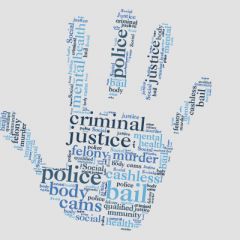Getting to the Illinois Supreme Court is a long shot. In any given year, the Supreme Court receives more than a thousand petitions for leave to appeal under Illinois Supreme Court Rule 315, notes Charles Insler in his May 2021 Illinois Bar Journal article, “Rule 317, Appeal as a Matter of Right.” From those thousand-plus petitions, the Court will allow leave to appeal in roughly 50 or 60 cases—about half of which are criminal and the other half civil. During the past five years, the odds of making it to the Supreme Court have ranged from one in 20 to one in 25. But what about Rule 317? The first part Rule 317 is clear and provides for automatic review in the Supreme Court when an appellate court has invalidated a state or federal statute. The second part of Rule 317, however, is less clear; but it provides an intriguing source for an appeal, as of right, to the Supreme Court, Insler explains.
Illinois Bar Journal
-
May 24, 2021 | Practice News

-
May 17, 2021 | Practice News

In his May Illinois Bar Journal Article, “FOID Where Prohibited,” Jake Crabbs addresses the intersection of two trends of 2020: 1) a tremendous jump in gun ownership; and 2) the anecdotal rise of domestic violence during shelter-in-place conditions. These two trends intersect in the provisions of the Illinois Domestic Violence Act of 1986 and the Firearm Owners Identification (FOID) Card Act. Prosecutors, criminal defense attorneys, family law practitioners, and gun owners should all be aware of the ways these statutes interrelate and the constitutional issues that may arise whenever an order of protection is entered against a FOID cardholder. These concurrent trends may eventually lead to an increase in the total number of petitions for orders of protection against respondents who have FOID cards, Crabb writes, especially when circuit courts finally return to full capacity. This is not to suggest that FOID cardholders are more likely to commit domestic violence, per se; it is simply a plausible result of the two unrelated trends. And when it comes to orders of protection against FOID cardholders, Crabb argues, there is a significant—and constitutionally infirm—gap in the governing statutes.
-
May 10, 2021 | Practice News

As Susan Bart demonstrates in her May 2021 Illinois Bar Journal article, “Who Are My Qualified Beneficiaries?,” it is essential to determine the qualified beneficiaries of an irrevocable trust under the Illinois Trust Code (ITC). Qualified beneficiaries have rights to receive notices of the existence of the trust and certain events, information about the trust, and accounts. But qualified beneficiaries may also be necessary parties to certain actions, such as a nonjudicial settlement agreement. A trustee who fails to correctly identify qualified beneficiaries, Bart notes, may breach her or his duties to provide information to qualified beneficiaries, or may provide information to beneficiaries who are not required to receive it. The Uniform Trust Code (UTC), upon which the ITC was based, uses the concept of “qualified beneficiary” to limit the class of beneficiaries to whom certain notices must be given or consents received. Bart introduces several kinds of scenarios that unpack the differences between qualified beneficiaries and remote and contingent beneficiaries under the new ITC.
-
May 3, 2021 | Practice News

This May’s Illinois Bar Journal cover story examines the state’s sweeping criminal justice reforms signed into law earlier this year by Gov. Pritzker. The IBJ interviewed defense attorneys, prosecutors, and others who reflected on the legislation. “Some people view it as, ‘They threw every reform into this sausage maker, and this is what came out,’” Stephen Baker, a retired Cook County public defender and member of the Illinois State Bar Association’s Criminal Justice Section Council, told the IBJ. “Some people take the position that, if you wanted a massive change, the time to do it is now. People are just fed up with the conduct of the police. And the train is leaving the station; if you don’t want to get on, get out of the way.” Others spoke optimistically about the reforms: “The breadth of the bill is one of its strong points,” says Jerrod Williams, a judicial clerk and member of the ISBA Steering Committee on Racial Inequality. “Solving the problems of crime and law enforcement requires a multi-front approach. I don’t believe law enforcement alone—that is, prosecuting offenders—is in and of itself a solution to crime. It’s a piece of the solution.”
-
April 26, 2021 | Practice News

A lawyer on a Zoom videoconference with other attorneys has to take a phone call during the meeting. But he forgets to press mute as he begins to discuss details of a high-stakes negotiation with the person on the phone. Lots of arm waving from the other Zoom participants ensues, but to no avail. Also, the Zoom host had left the room, leaving no one with the power to mute the attorney. Did the loquacious lawyer breach his duties to his client? What were the duties, if any, of the innocent lawyer-bystanders who were now in possession of very significant information? What about the opposing party in the real estate transaction, were she to be presented with this information? In his April Illinois Bar Journal ethics column, “No, I Am Not a Cat,” Illinois State Bar Association General Counsel Charles Northrup examines this situation—a new twist on the old “errant fax” issue made more unique by now-widely used technology.
-
April 19, 2021 | Practice News

While cash bail may be going away in Illinois, other pretrial release requirements remain. In his April Illinois Bar Journal article, “What Is So Special About a Bond Review?,” Jarrad Woodson reinforces why a bond review may set the tone and control pressure points of your client’s case from the very beginning. If your clients cannot afford their bail, or if bail is denied, the burden of getting them out of custody will always be present. Even if your client is waiting the case out from home, the conditions of bond could be so oppressive they make your client a prisoner there as well. Therefore, arguing effectively at the bond review stage is crucial. Your client already went through bond court, so why ask for a bond review? Ideally, Woodson notes, officials at the bond-court level do their best to work together for a fair initial bond, but sometimes this does not happen. The bond court churns and turns cases quickly. Important information about a defendant can get misplaced. This is where the beauty of bond reviews come in: You get another chance.
-
April 14, 2021 | Practice News

The Illinois State Bar Association invites Young Lawyers Division (YLD) attorney members to establish yourselves as experts in your practice area and compete for your share of $3,500 in prize money by entering the Annual Lincoln Award Legal Writing Contest.
Submissions should be useful, practical articles on topics important to practicing lawyers. Submissions will be considered for publication in the Illinois Bar Journal.
-
April 12, 2021 | Practice News

Traditionally a safeguard exclusively available to journalists, shield laws in many jurisdictions have gradually broadened in scope and now protect material generated and relied upon by many professionals when conducting research for publication. But according to Daniel Schwartz in his April Illinois Bar Journal article, “Discovery Orders and the Peer-Review Privilege,” few cases in Illinois discuss the applicability of shield laws to medical research. Whether—and to what extent—medical research is discoverable therefore remains an unsettled issue, Schwartz argues. To bring coherency to Illinois law governing discovery requests for medical research, Schwartz examines discovery requests litigated under the Illinois Medical Studies Act and several state and federal discovery provisions. He also highlights the factual and doctrinal significance of the cases discussed and notes important considerations for legal practitioners seeking to issue or bar a request to produce medical research.
-
April 5, 2021 | Practice News

Historically, guilty-plea defendants in Illinois have been denied the opportunity to present actual-innocence claims based on newly discovered evidence because their convictions were founded on valid guilty pleas. However, the Illinois Supreme Court recently held in People v. Reed that these defendants can raise claims of actual innocence under the Post-Conviction Hearing Act. Although this is a momentous victory for guilty-plea defendants, the burden they must meet is significant. In her April 2021 Illinois Bar Journal article, “Guilty Plea, Innocent Defendant,” Ashley Kidd, a law clerk for the Third District of the Illinois Appellate Court, discusses the function of plea agreements in our criminal justice system, the Reed decision, and how these claims should be presented post-Reed.
-
March 29, 2021 | Practice News

Every client and trial are different. But successful trial lawyers know that winning a case requires deep preparation and attention to detail that begin long before jurors are seated and the trial starts. Recently, in an ISBA CLE titled The Eight Things Every Trial Lawyer Should Know, Illinois attorneys and judges shared characteristics all good trial attorneys have in common. The Illinois Bar Journal features their key takeaways in the April 2021issue.
Their tips and tricks cover eight aspects of trial law: presenting and arguing motions in limine, selecting a jury, making objections, establishing proofs through direct examination, controlling a witness on cross examination, handling the jury instructions conference, delivering a closing argument, and maintaining professionalism during an adversarial process.

